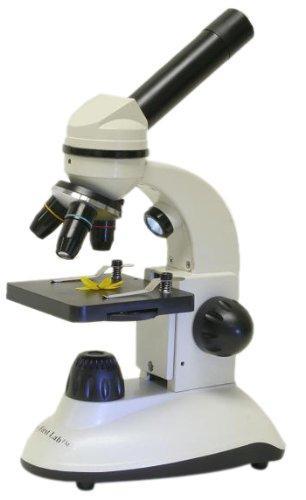Science Toys Guide
In this science toys guide, you will find science toys and games that can get children interested in science. These toys and games teach about science subjects related to chemistry, physics, astronomy, meteorology, biology and more.
Chemistry sets
When it comes to learning chemistry, there are chemistry sets that are a lot of fun. Children can start with crystal growing kits. Growing a crystal can be a fascinating experience for a child. Various elements are mixed and children watch a crystal grow. They also learn about crystals, their composition and their various properties. There are also volcano making kits that introduce children to chemistry and geology. Kids mix various ingredients and watch incredibly realistic volcano eruptions. By the way, you can also visit our geology games page, for games related to geology.Children can then move on to chemistry sets. There are chemistry sets for various age ranges. The Scientific Explorer's Mind Blowing Science Kit for Young Scientists is for ages 5-8 while the Science Wiz Chemistry Plus Experiment Kit is for children ages 8-15. Kids use test tubes, instruments that chemists use, mix various liquids and use manuals that teach about chemistry.
When it comes to chemistry there are also beautiful photo cards with images of chemical processes (for example, how water turns into ice or wapor, or how iron rusts) with information on the back of the cards. By the way, periodic table of the elements posters are great in the children's bedroom.

My First Lab Duo-Scope Microscope |
Related to chemistry, there are microscopes for kids. You can get either a low or high power microscope. With a low power microscope (magnifications ranging from 10x to 80x), kids can look at things like insects, fabric weaves, coins, etc. With a high power microscope (magnification up to 1000x), kids can look at pond water, bacteria or even blood cells!
Physics toys and games
By playing physics and electricity games, kids can develop a passion for physics and engineering. For example, some physics toys involve building machines such as cranes, levers or windmills or building a battery and in the process teach kids about the various laws of physics. There are also electricity games that teach how solar energy can be turned into electricity. These physics and electricity games always include manuals with pictures that teach how to build the machines and all the related scientific concepts along with some fundamental laws of physics.Kids can start with playing electricity and physics toys from the age of 8. For beginners, there is the Thames and Kosmos Physics Workshop (ages 8 and above) in which kids build machines such as a windmill, a scale or a pendulum clock and experiment with levers, gears, pulleys, etc and learn about the basic laws of mechanical physics. For older children, there is the Thames and Kosmos Physics Pro, a best seller game which has also received many awards including the Parent’s Choice Silver Honor. It is Thames & Kosmos biggest and most advanced kit. Here the machines being built are even more impressive. For example, instead of levers, kids now build a hydraulic lift and other amazing machines and learn about more advanced topics in physics, such as energy, oscillation, fluid dynamics, hydraulics, etc.
Astronomy games
This science toys guide also covers astronomy games. Astronomy games can teach kids about the solar system and interesting facts about the planets. There are solar system puzzles that are fun to assemble and that look beautiful once completed such as the Melissa & Doug Solar System Puzzle. There are also fun solar system games such as the Planet Quest Game an award winning game where kids learn interesting facts about the solar system.Telescopes are great to have and many telescopes are relatively affordable. Once you and your kid have acquired enough knowledge on how to observe the night sky using a good astronomy book, you can use a telescope to do some stargazing. Looking at the stars and planets can be a fascinating experience for a child.
Return from Science toys guide to Science Games
Return from Science toys guide to Homepage